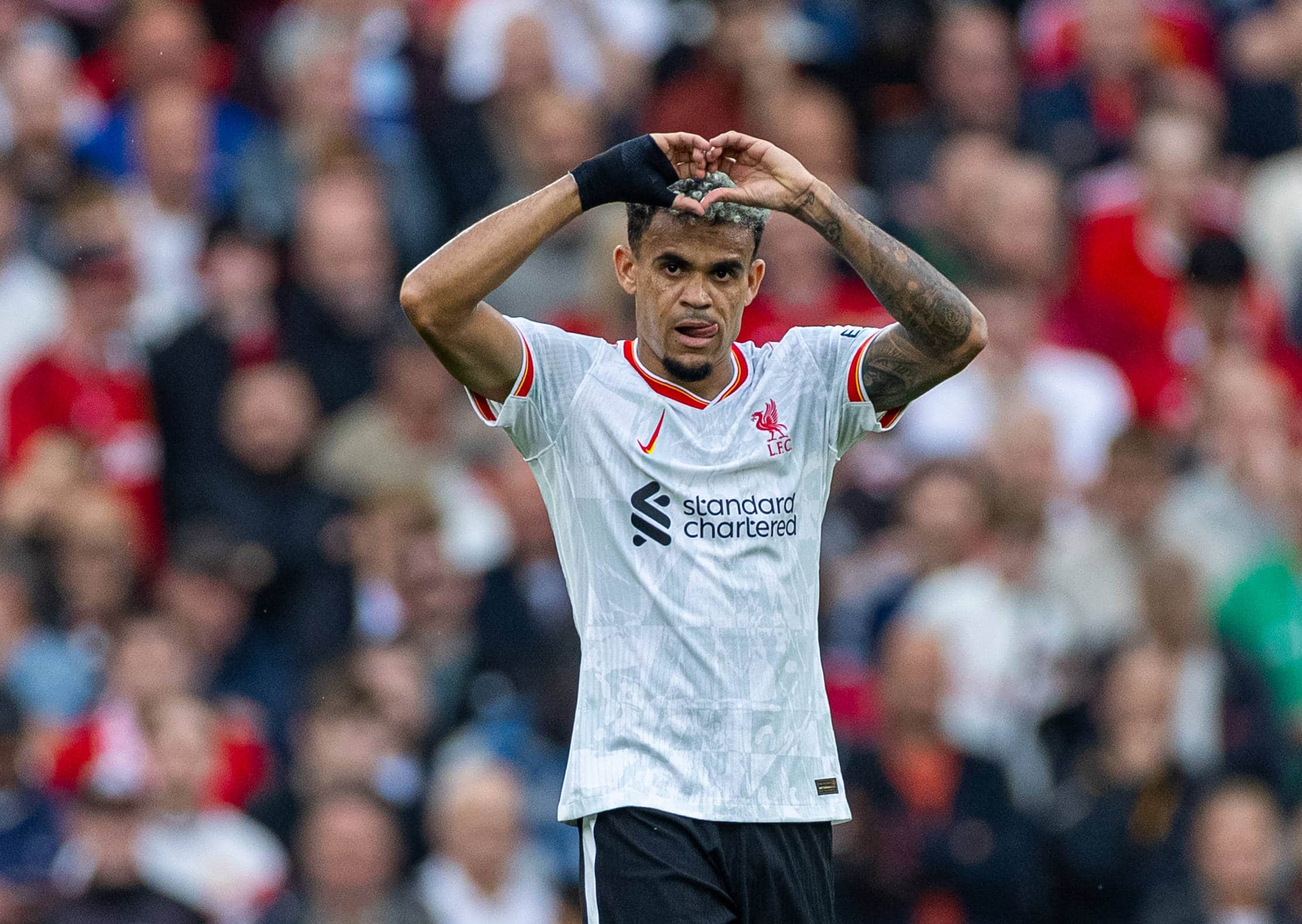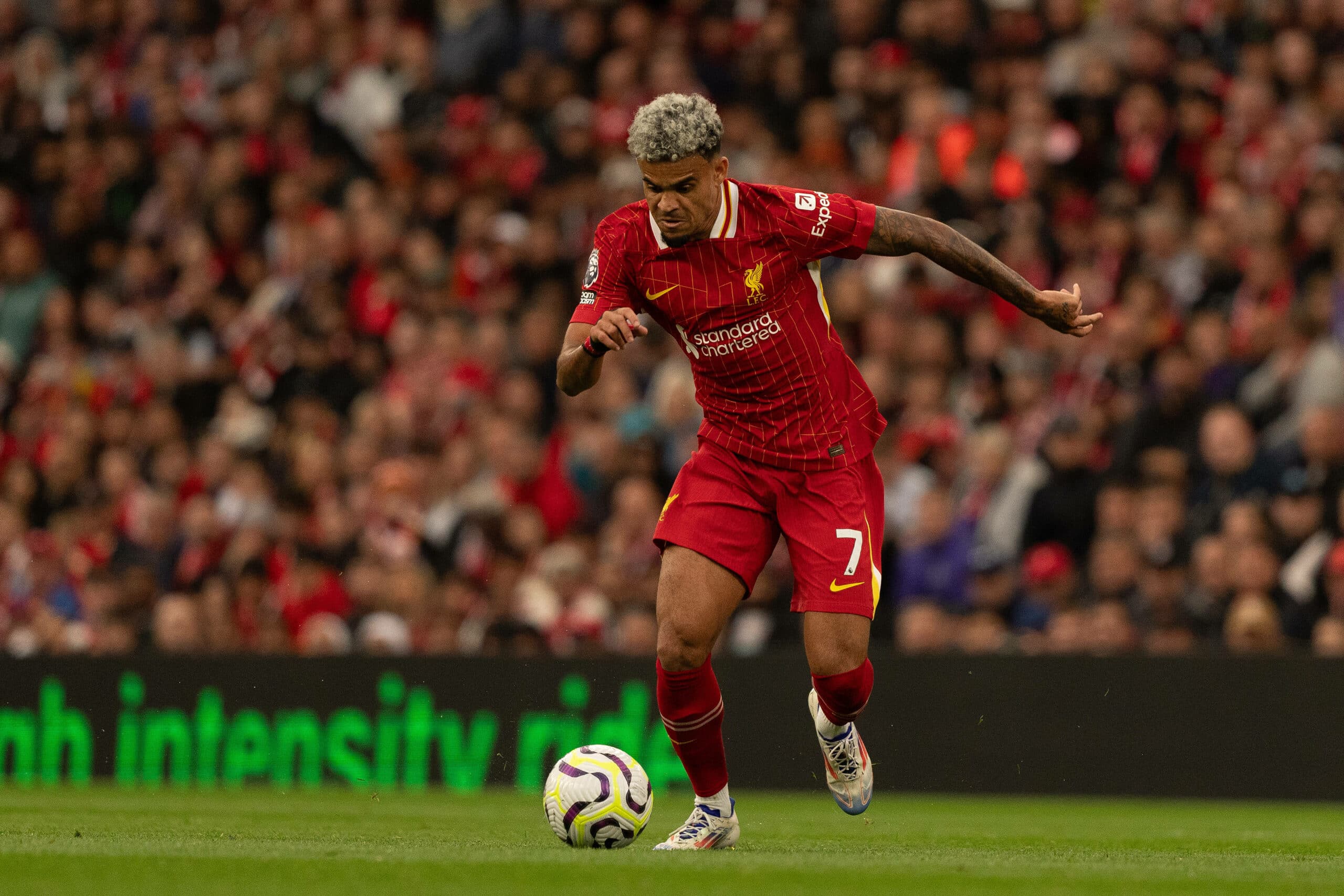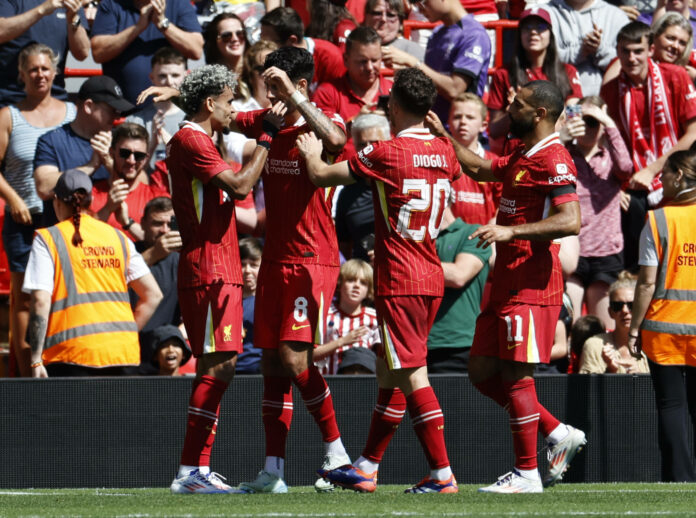Unravelling Liverpool’s Contract Strategy with Luis Diaz
In the ever-evolving world of football, the strategy behind player contracts can often be as complex as the game itself. On a recent episode of Anfield Index’s ‘Media Matters,’ David Lynch shared intriguing insights into Liverpool’s current stance with winger Luis Diaz, stirring up quite the conversation among the Reds’ fanbase and pundits alike. Here, we delve deeper into these revelations and what they could mean for Liverpool’s future plans.
Liverpool’s Calculated Gamble
According to David Lynch, despite the brilliance Luis Diaz has displayed on the pitch, Liverpool were “definitely open to selling Diaz if the right money came in for him and get someone else.” This approach might seem counterintuitive given Diaz’s impact since joining the squad, but it highlights a broader strategic play from the Reds. Selling a high-performing player at a peak valuation could boost Liverpool’s ability to reinvest in other areas of the team, potentially balancing the squad or addressing more urgent needs.
“I don’t believe they’re opening new talks at the moment,” Lynch stated, pointing out that Diaz still has three years remaining on his contract. This decision not to rush into new negotiations suggests a confident approach from the club’s management, betting on the existing contract’s length to maintain leverage over the situation.

Timing of Talks
The timing of contract negotiations is a tactical element often overlooked by casual observers. Lynch touches on this, explaining, “There becomes more pressure on the contract situation when it reaches the two-year point but at the minute, there’s no real pressure to extend that deal.” This strategic patience allows Liverpool to monitor Diaz’s development and market dynamics more closely before making a long-term commitment.
Despite the seeming calm, the backdrop to this is Diaz’s desire for a new deal, likely spurred by his agent and market forces. “The vibe I was getting when talking to people was that a lot of the stories from this summer was driven by the player’s desire to get a new contract,” Lynch remarked. This dynamic adds another layer of complexity, balancing player satisfaction and club strategy.

Financial Flexibility and Squad Dynamics
Lynch’s insights suggest that Liverpool’s willingness to entertain offers for Diaz earlier in the summer was a calculated risk, informed by financial and strategic considerations. “I know he’s flying at the moment and seems like madness, but that was very much the stance at the time.” Selling a star player isn’t a new tactic for top clubs; it’s about timing and the perceived value in terms of squad and financial health.
The club’s approach reflects a broader perspective where financial flexibility is prized as highly as talent retention. By potentially selling Diaz at a high, Liverpool could fund other transfers or contract improvements, maintaining a competitive squad within UEFA’s financial fair play constraints.
What This Means for Liverpool
Moving forward, Liverpool’s handling of Diaz’s contract situation will be a case study in modern football management. Balancing the books while maintaining a squad capable of competing at the highest level requires a blend of shrewd financial management and sporting insight.
As the situation evolves, the decisions made now could very well shape the next phase of success for the Reds. Whether this approach will pay dividends remains to be seen, but one thing is clear: the world of football management is as much about strategic foresight as it is about tactical acumen on the pitch.
In conclusion, the ongoing saga of Luis Diaz at Liverpool is more than just a contractual dispute. It’s a reflection of the complex interplay between finance, strategy, and sport. As Lynch aptly puts from his discussions, the club’s current stance is a calculated part of a larger puzzle, fitting into the intricate mosaic of Premier League football.



